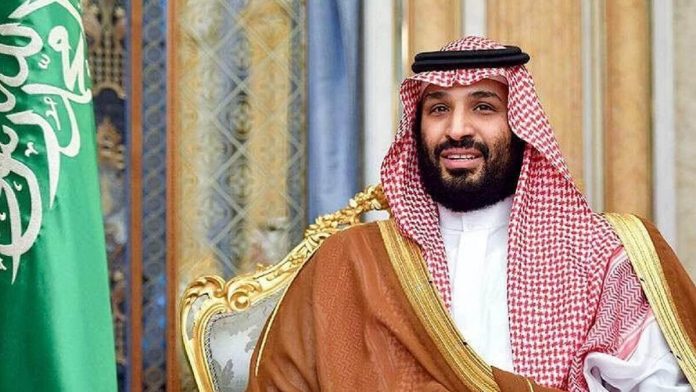Esta medida, que tiene como objetivo “fortalecer las relaciones” entre Riad y los palestinos, se produce en medio de rumores sobre una posible normalización
Por primera vez, Arabia Saudí ha designado a un embajador extraordinario y no residente para Palestina, que a su vez ejercerá como cónsul en Jerusalén. Tal y como anunció el Ministerio de Asuntos Exteriores del Reino, Nayef al Sudairi -el actual embajador saudí en Jordania- entregó una copia de sus credenciales como embajador extraordinario para Palestina a Majdi al Jalidi, asesor de Asuntos Diplomáticos del presidente palestino Mahmoud Abbas.
Aunque Al Sudairi continúe con sus labores desde Ammán, las autoridades palestinas consideran este movimiento como una victoria diplomática. Tal y como recuerda The Jerusalem Post, Arabia Saudí es el cuarto país árabe en nombrar un embajador en Palestina después de Egipto, Jordania y Marruecos.
El anuncio se produce en medio de los crecientes esfuerzos de Estados Unidos por lograr una normalización diplomática entre Arabia Saudí e Israel. Desde hace meses, altos cargos estadounidenses han viajado al Reino con el objetivo de impulsar el establecimiento de lazos diplomáticos entre ambos países.
“La negociación de un acuerdo de normalización reforzaría las relaciones entre Estados Unidos y Arabia Saudí y blindaría la presencia estadounidense frente a la creciente influencia china en la región”, señala a Atalayar Valeria Scuto, analista principal para Oriente Medio y Norte de África en Sibylline. Igualmente, un acuerdo entre Riad y Jerusalén supondría “un importante elemento de disuasión regional contra Irán”. A nivel interno, este hito representaría un logro diplomático para la Administración de Joe Biden de cara a las elecciones del próximo año.
A pesar de que esta normalización supondría un gran logro diplomático para Israel, fomentando su integración en la región, muchos analistas consideran improbable un acuerdo de paz entre Jerusalén y Riad con el actual Gobierno israelí. “Arabia Saudí ha abogado por una solución de dos Estados, pero eso es algo que Netanyahu no puede plantear con su actual Gobierno, y que, en general tiene un consenso limitado en las esferas políticas israelíes”, apunta Scuto. La experta en la región indica además que «la normalización con Israel sigue sin ser popular entre la opinión pública saudí”.
Mientras en Ramallah se celebra el nombramiento del cónsul saudí para Palestina, el Gobierno israelí, por su parte, ya se ha pronunciado acerca de este movimiento, asegurando que no permitirá la apertura de ninguna representación diplomática para los palestinos en Jerusalén.
Así lo ha asegurado el ministro israelí de Asuntos Exteriores, Eli Cohen, durante una entrevista en la emisora 103 FM. “No han coordinado nada con nosotros, pero no vamos a permitir la apertura de la misión diplomática”, enfatizó. El jefe de la diplomacia israelí también resaltó que este movimiento por parte de Arabia Saudí tiene el objetivo de enviar el mensaje a los palestinos de que el Reino “no se ha olvidado de ellos”.
English version
Saudi Arabia names for first time a consul in Jerusalem
This measure, which aims to «strengthen relations» between Riyadh and the Palestinians, comes amid rumors about a possible normalization
For the first time, Saudi Arabia has appointed an extraordinary non-resident ambassador for Palestine, who will in turn serve as consul in Jerusalem. As announced by the Ministry of Foreign Affairs of the Kingdom, Nayef al Sudairi – the current Saudi ambassador in Jordan – delivered a copy of his credentials as extraordinary ambassador for Palestine to Majdi al Khalidi, Diplomatic Affairs adviser to Palestinian President Mahmoud Abbas.
Although Al Sudairi continues his work from Amman, the Palestinian authorities consider this move a diplomatic victory. As The Jerusalem Post recalls, Saudi Arabia is the fourth Arab country to appoint an ambassador to Palestine after Egypt, Jordan and Morocco.
The announcement comes amid increased US efforts to achieve diplomatic normalization between Saudi Arabia and Israel. For months, senior US officials have traveled to the Kingdom with the aim of promoting the establishment of diplomatic ties between the two countries.
«The negotiation of a normalization agreement would strengthen relations between the United States and Saudi Arabia and would shield the US presence against the growing Chinese influence in the region,» Valeria Scuto, principal analyst for the Middle East and North Africa at Sibylline, told Atalayar. . Similarly, an agreement between Riyadh and Jerusalem would be «an important regional deterrent against Iran.» Internally, this milestone would represent a diplomatic achievement for the Joe Biden Administration ahead of next year’s elections.
Despite the fact that this normalization would be a great diplomatic achievement for Israel, promoting its integration in the region, many analysts consider a peace agreement between Jerusalem and Riyadh with the current Israeli government unlikely. «Saudi Arabia has advocated for a two-state solution, but that is something that Netanyahu cannot raise with his current government, and that, in general, has a limited consensus in Israeli political spheres,» says Scuto. The expert in the region also indicates that «normalization with Israel continues to be unpopular among Saudi public opinion.»
While the appointment of the Saudi consul for Palestine is celebrated in Ramallah, the Israeli government, for its part, has already ruled on this movement, assuring that it will not allow the opening of any diplomatic representation for the Palestinians in Jerusalem.
This was stated by the Israeli Minister of Foreign Affairs, Eli Cohen, during an interview on the 103 FM station. «They have not coordinated anything with us, but we are not going to allow the opening of the diplomatic mission,» he emphasized. The head of Israeli diplomacy also stressed that this move by Saudi Arabia is aimed at sending the message to the Palestinians that the Kingdom «has not forgotten about them.»



